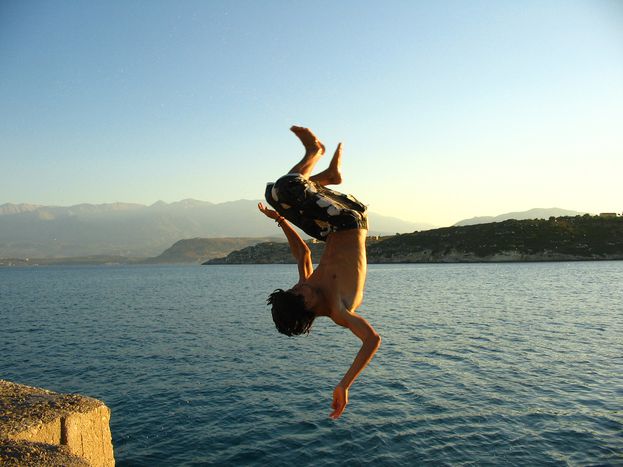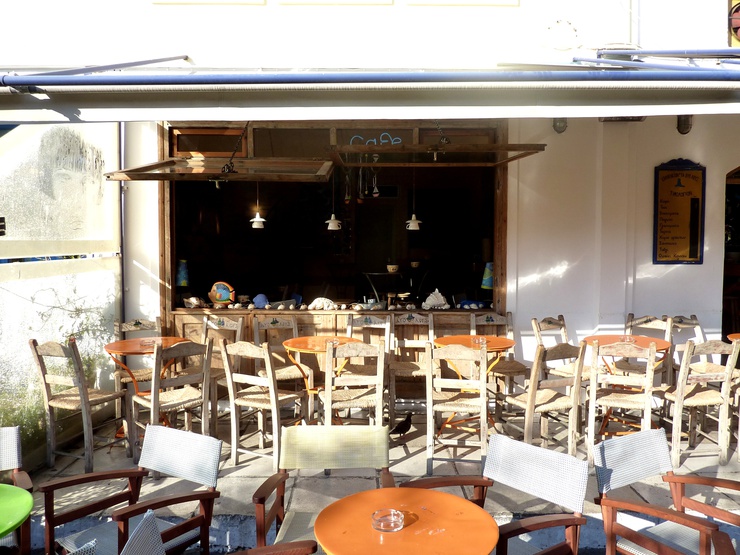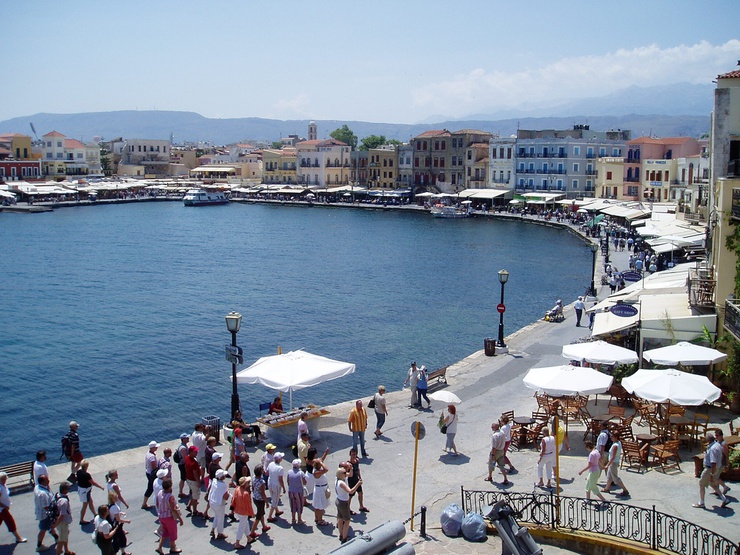
Join the family business in Crete
Published on
Translation by:
Monica BibersonAccording to a study conducted by Philomila Tsoukala, a lecturer at Georgetown University, 75% of Greek companies are family-owned, and even then, youths start earning a living between the ages of 30-35. What's going on?
Under the blazing sun of Chania there is nothing that would make you think that Greece is going through the worst economic crisis in its history. Between the luxury shops in city centres and night clubs thronging with the local gilded youth, are we dealing with a country which has long lived beyond its means or an eternal Greek El Dorado?
Chania: tourism in decline
The old port of Chania, Crete's second largest city, is the tourist attraction par excellence. Whilst visitors come several times during their stay to taste Greek specialities and bask in the festive atmosphere, summer restaurants in the port area are filled to only a third of their capacity, forcing waiters out in the street to go and look for customers. ‘The crisis is still to come here in Crete,’ notes Marinos, a young restaurateur in the old port. ‘Once the high season is over we will have to live off the income we have stored up this season until next summer.’

Who should bear the blame? For 27-year-old architect Giorgos the mediatic hysteria is the only culprit. ‘The Greek and the international media have greatly exaggerated the recent protests against the austerity measures,’ he says. Images of stones flung at the police and cars set ablaze were shown in a continuous loop on news channels. They have no doubt dissuaded more than one potential tourist from spending their holidays in Greece. Yet apart from a few protest graffitis here and there, nothing betrays people’s discontent in Chania. ‘People come here to have a good time. We keep our troubles to ourselves so we don’t chase them away,’ says Mariana, a hotel manager. Prices have even been lowered to attract customers.
Chania's party spirit
Sunbathing, beach tennis and cocktails: far from the worries of small shopkeepers, the local golden boys keep on partying whilst showing off their sculpted bodies on Chania’s beaches. Architect Giorgos denies it is an attempt to forget about the dangers to come. ‘There are no problems here; Greeks are rich. It’s the Greek state that is poor,’ he states knowingly, which reminds me that half of the Greek GDP comes from the parallel economy. Like many Greeks, these privileged youths will start earning a living between the ages of thirty and thirty-five, often by taking over their parents’ companies. ‘Few of them have any ambition to try and find a place for themselves somewhere other than in the family business,’ explains Christiana, a 26-year-old English teacher. ‘When we spend a quarter of our lives on the beach it’s hard to change habits. Besides, it must be pleasant to start your career from a managerial position,' she adds, smiling. But most of Chania’s youths do not find themselves in this position and would prefer to fly with their own wings, at the risk of sharing Icarus’s fate. Only, instead of falling into the sea, they drown in the troubled waters of the family business.

According to a study mentioned in the New York Times and conducted by Philomila Tsoukala, a lecturer at Georgetown University in the United States, 75% of Greek companies are family-owned. For young people the choice is quickly made: they either work for their family or for another. In the latter case, the chances of attaining a position of responsibility are slender if not non-existent. Pay conditions often border on the indecent because the culture of merit pay does not exist in the family type of business. Even within a family company work without a contract, the absence of a minimum wage and unpaid overtime are the norm. Becoming autonomous in these conditions becomes virtually impossible. ‘This lifestyle kills off ambition and entrepreneurship,’ complains teacher Christiana.
The absence of a minimum wage and unpaid overtime are the norm in family-run businesses
It also stifles the potential of young Greeks who, although they have some of the highest number of qualifications in Europe, do not get to put their skills to good use in their country. Could the Greek social model be the country’s main enemy in the fight against the crisis? It certainly risks being severely tested if the crisis worsens and families are forced to eat into their capital instead of passing it on to future generations. Far from the depravity preyed upon by the European press, Cretans calmly sip their coffee frappé by the sea. ‘We are hardly likely to stop living,’ protests Andreas, a 28-year-old computer science teacher. ‘A crisis is not a catastrophe.’ Andreas knows what he is talking about. In Greek, κρίση (‘crisis’) means questioning an existing order of things in order to achieve a new and better one. Cretan wisdom is most certainly not a myth.
Read frappebabel from the official cafebabel.com team in Athens
Images: main (cc) supivas/ dieselchichen.it/; empty cafe (cc) Matthieu Stankowski; view of Chania (cc) C.K.H/ all courtesy of Flickr
Translated from La crise vue de Crète : le travail, une affaire de famille



